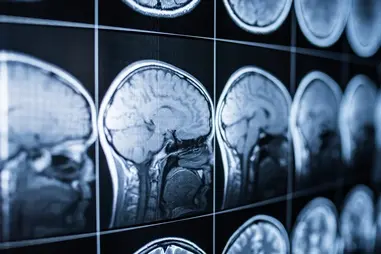
Protecting Yourself Legally After Any Kind of Traumatic Brain Injury
Every traumatic brain injury (TBI) case is different. The cause of the accident and the severity of the injury both play a huge role in your physical and financial recovery. Anyone who suffers a TBI may face an extremely wide range of potential symptoms that can interfere with day-to-day enjoyment of life, as well as severely impact the ability to earn a living.
Types of Head Wounds in Common Accidents
Brain injuries are a danger in several different accident types, from drowning incidents at the pool to car crashes or even a slip and fall at the grocery store. Any TBI can be broadly split between two main types, however: either a closed head wound or a penetrating injury.
The latter is an extremely serious injury where the skull is fractured, and an object actually penetrates brain tissue. For instance, the victim’s brain may be pierced when tripping and striking something sharp in a fall. Penetrating brain injuries can also occur in the chaos of a car wreck, whether the victim remains in the vehicle or is ejected and strikes the pavement.
Although it sounds less severe at first, a closed head wound can be just as dangerous as a penetrating one. With these types of injuries, the head may be struck with extreme force, but nothing actually breaks through the skull. Closed wounds can even take place if you don’t directly strike your head against anything, however, as the violent back and forth motion of a truck collision or a sports injury can lead to brain tissue damage on its own.
Specific Traumatic Brain Injuries
Within the overall closed or penetrating categories, there are several different ways the human brain is susceptible to serious harm in an accident. Survivors may deal with specific TBI types such as:
- Anoxic brain injury. A complete lack of oxygen to the brain, even for a short period, can lead to serious damage of brain tissue. While more likely to result from natural causes like a blood clot, anoxic injuries can also arise from the trauma of a vehicle accident.
- Brain contusion. Bruising occurs when soft brain tissue strikes the hard interior of the skull, or when an outside object directly strikes the head, such as a countertop or even the ground.
- Concussion. One of the milder forms of TBI, a concussion typically occurs through a hard shake or a sudden impact and may result in momentary loss of consciousness. Because they are harder to detect at the time of the accident, victims who don’t realize they were hurt may experience post-concussion syndrome and long-term symptoms.
- Coup-Contrecoup. This double injury takes place when one side of the brain strikes the skull, then it jolts back and hits against the opposite side as well. Coup-contrecoup wounds are particularly dangerous because the symptoms may not appear for days or weeks if the problem isn’t caught immediately after the accident.
- Diffuse axonal injury. Another brain injury that isn’t visible to the naked eye and requires special imaging tools to discover, diffuse axonal wounds involve actual tearing or shearing of tissue when the brain is suddenly and forcefully moved during a car or motorcycle accident.
- Hypoxic brain injury. While anoxic injuries involve a total lack of oxygen, hypoxic ones instead occur when there is restricted or reduced oxygen flow, such as cases of near-drowning or breathing in dangerous gases.
- Secondary injuries. Damage caused by automatic responses from the body are a serious concern after any TBI, such as swelling or fluid buildup in the brain that can lead to severe damage well after the original accident.
Severity of Traumatic Brain Injuries in Personal Injury Cases
Any of these brain injuries may have either relatively minor repercussions or devastating, life-altering consequences depending on the severity of the wound. In brain injury cases, the overall level of severity is usually based on losing consciousness at the time of the accident. Doctors use the Glasgow Coma Scale to assign a specific severity number, typically set between 3 and 15, with a lower number indicating a worse injury. The three main levels include:
- Mild. The victim either doesn’t lose consciousness at all, or only blacks out for a few moments. Some brain scans may not even pick up any indicators of an injury at all at this level, which is why patients need to watch out for warning signs like disorientation, nausea, vertigo, and headache.
- Moderate. With a moderate injury, the victim may pass out for several hours and will often experience extreme lethargy and confusion upon waking.
- Severe. At this level, the patient remains unconscious for six or more hours and may enter a coma or persistent vegetative state. At the most severe end, the victim passes away from the injury.
It’s also important to note that the location of the head impact is another factor in how the brain injury will affect your future, as left and right-side injuries can result in differing outcomes. Depending on the specific lobe or hemisphere struck in the accident, brain injury survivors may potentially experience symptoms like:
- Cognitive difficulties
- Depression and anxiety
- Difficulty swallowing
- Fatigue or exhaustion
- Headaches
- Inability to concentrate
- Nausea
- Mood and behavioral changes
- Ongoing chronic pain
- Paralysis
- Problems with speech and language
- Seizures
- Sleep changes
- Vertigo and loss of balance
- Vision loss
Why You Need an Attorney After a Brain Injury Accident
Even so-called mild brain injuries may lead to massive medical bills and serious life changes. That’s why your first call after leaving the hospital should be to a lawyer who can help identify who is liable for your damages.
Costs like the emergency room bill, hospital stay, and lost wages while recovering from the injury should all be part of your eventual compensation. TBI victims, in particular, also need to consider potential future damages. Besides the physical repercussions, you are very likely to deal with long-term effects on the cognitive ability that make normal activity difficult or impossible. An experienced attorney can help you hold the at-fault party responsible for all your damages, including future needs like occupational therapy, physical rehab, and assisted living costs.
To protect your legal rights and financial recovery, you need a skilled legal professional on your side with experience in TBI cases. Call the Scott Vicknair Law Firm at 504-500-1111 or use our contact form today to schedule a consultation and discuss your legal options.


